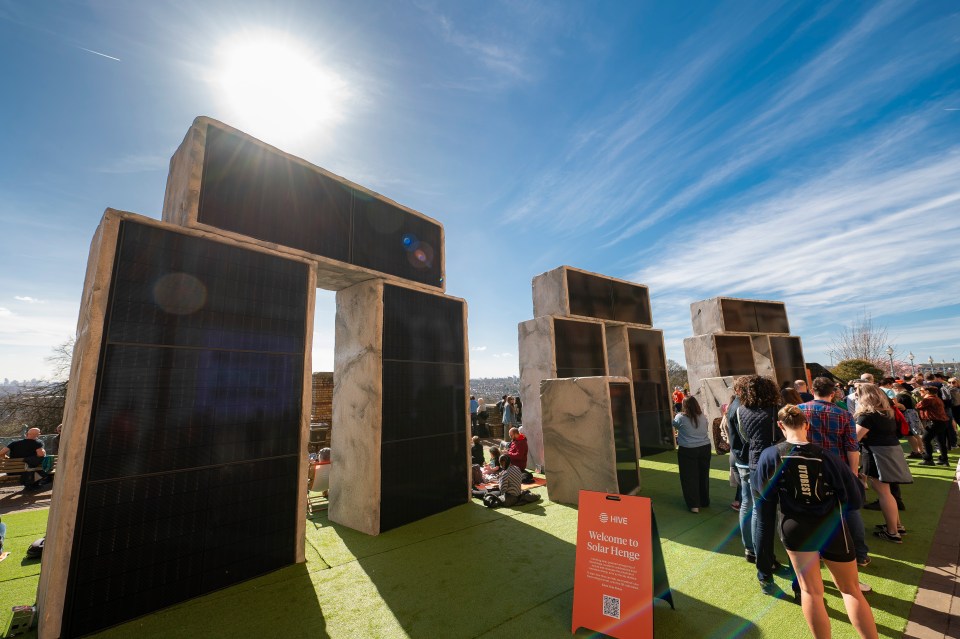Understanding Energy Sources: A Wake-Up Call for Millions of Brits

Recent research reveals that millions of people across the UK are in the dark about the origins of the energy they use daily. A survey conducted with 2,000 adults found that a surprising 27% were uncertain about how their electrical and gas devices are powered in their homes. Additionally, 29% were confused about the overall production of power in the UK.

In a bid to raise awareness, Hive, a leading eco-technology company, hosted a unique event titled Solar Henge at Alexandra Palace to celebrate the recent solar eclipse. This innovative viewing party featured a solar-powered recreation of Stonehenge, one of the most iconic ancient monuments, crafted entirely from solar panels.
Moreover, the survey highlighted a number of misconceptions surrounding solar energy. For instance, over a third (35%) of respondents mistakenly believe that the UK’s climate is unsuitable for solar panels, while 19% think there isn’t enough sunlight for them to function effectively. Alarmingly, 17% of those surveyed worry that solar panels might cease to operate for hours or even become permanently damaged during events like a solar eclipse.
Hive’s spokesperson, Susan Wells, explained, “Many people assume that solar panels require direct, intense sunlight to generate electricity, but that’s a common misconception. Solar technology is designed to operate efficiently even on cloudy days, meaning that the UK’s weather does not hinder the potential for harnessing renewable energy.” She further elaborated that modern solar panels capture daylight rather than heat, allowing them to generate power even under overcast skies. In fact, countries with climates similar to the UK, such as Germany, have successfully utilized solar energy for many years.
The Solar Henge installation featured 52 impressive solar ‘stones’ measuring 5.6m by 1.3m, collectively generating energy that powered a Solar Serves food and drink truck, which served unique breakfast patties in charcoal buns, alongside music to enhance the atmosphere during the eclipse.
Interestingly, the study found that 68% of participants expressed a desire for their homes to be fully powered by renewable energy sources. However, 25% were unaware that excess energy generated by solar panels could be stored or fed back into the National Grid. In fact, more than one in four (26%) admitted to having no understanding of how the National Grid operates.
- While 79% recognized solar panels as a source of renewable energy, only 56% were aware of hydroelectric power.
- Even fewer, just 43%, considered geothermal energy as a viable renewable source.
Furthermore, 48% of homeowners surveyed do not currently have solar panels but are open to the idea. Among those who either own or are considering solar panels, 68% look forward to the prospect of lower energy bills, while 48% hope to contribute positively to the environment.
Wells concluded, “Stonehenge was believed to have the ability to predict the eclipse, educating people on solar phenomena since 2500 BC. Fast forward to 2025, and we are mirroring this ancient monument in an effort to empower the UK by showcasing how we can effectively harness the sun’s energy to generate electricity.”
The UK experienced a solar eclipse on March 29, marking a significant moment for raising awareness about renewable energy sources.